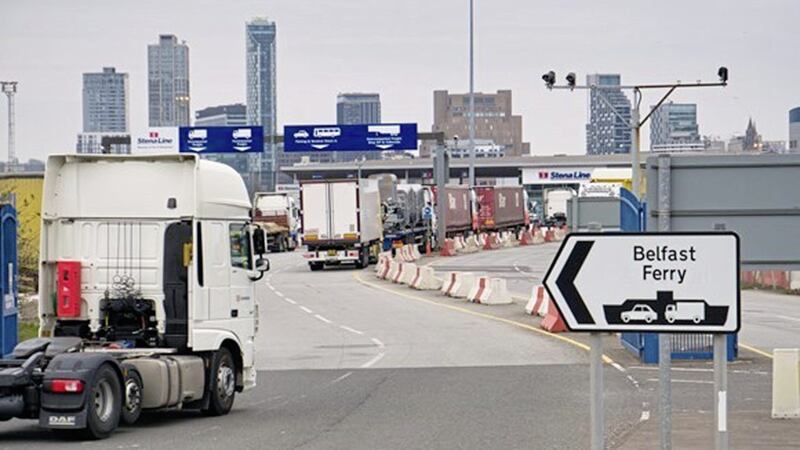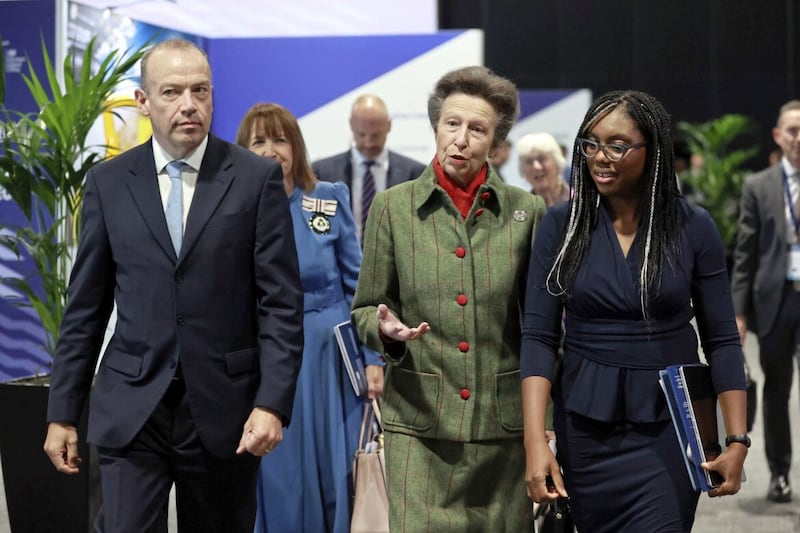LAST week I had good intentions to write an upbeat column on Northern Irish tourism for 2022.
I had hoped to explore the great opportunities for all-island collaboration in terms of international marketing with Tourism Ireland, the expectations for attracting back business tourism this summer as global conferences and in-person events resume.
And, of course, I had hoped to talk about the opportunity to further develop Republic of Ireland visitors venturing up North for a break. Recent NI Tourism statistics show that 9 per cent of RoI consumers visited Northern Ireland last year, so there is still a significant amount of untapped potential there.
Without doubt there are plenty of reasons to be cheerful for this sector and with the movie Belfast acting as an international billboard, we should be preparing to make hay when the sun is rising. With the right policy and sufficient funding, 2022 could be a transformative year for our tourism industry.
Unfortunately, though, like many others last Thursday, my plans got thrown off course when changes to the political landscape dominated the news. The resignation of the First Minister along with heightened tensions around implementing the NI Protocol diverted my attention away from my more optimistic thoughts and lured me back into thinking about Northern Ireland in fire-fighting mode.
It’s hard to believe that once again, we see local businesses and communities heading into yet another fragile period for devolution. The very thought of moving into election times with all the political noise that entails is not pleasant for the business community (or indeed the public) in Northern Ireland.
And yet this is all happening at a time when companies continue to face untold challenges. With firms still suffering the impact of covid lockdowns, they now face soaring energy costs, wider inflationary pressures, labour shortages and problems with global supply chain issues. There has never been a more important time for political leaders in Northern Ireland to be pulling together. Politicians should not underestimate the amount of work to be done in the year ahead.
In December last year, I discussed in this column my concerns around energy costs and wider inflation. Since December my anxiety around these issues has only increased further. In January, the UK-wide CBI carried out an in-depth survey with members on the energy costs issue. The findings make for uncomfortable reading.
On average, companies surveyed have already been hit with an average increase in energy costs of 22 per cent in the last three months although some respondents to our survey reported that their energy costs have more than doubled in recent months.
Many expect to face a further rise of 29 per cent over the next quarter. As fixed rate energy contracts expire, the pressure to pass on cost increases will build, with one in every three firms surveyed expecting to pass on the inflationary pressures to their customers.
Locally we pride ourselves on Northern Ireland’s strong manufacturing base which makes a huge contribution to employment in rural locations, but now manufacturing and other energy intensive sectors are finding themselves under real pressure. They are increasingly uncompetitive compared with international rivals whose governments have taken action to help.
While Northern Ireland grapples to agree a devolved energy strategy and implement an action plan in the months ahead, there is an urgent need for local political leaders to work closely with the UK Government on this issue.
There are so many other burning issues for the business community, such as agreeing a three-year budget and a local Skills Strategy, and, like the energy issue, they cannot be allowed to drift because of local political uncertainty. The tsunami of challenges that companies face today require political leadership, partnership and collaboration.
We all desperately want to see this economy growing, competing on a world stage, creating jobs and improving living standards. But when I talked to companies last week about the impact of recent political developments they spoke of their huge disappointment.
Exporters fear that our reputation internationally will be damaged, and they have concerns that GB customers and suppliers in particular will look elsewhere for trade.
Many have spent time on the phone reassuring customers that they can still meet orders and they will continue to adhere to all the legal requirements for moving goods. Local firms are keen that they will not be left in limbo when it comes to policy agreement on things like Covid guidance, an energy action plan, allocating public monies or addressing labour shortages.
The next few weeks and months look uncertain, only time will tell how the political landscape pans out. In the meantime, companies will continue to navigate trading and maintaining jobs against a stormy economic and political backdrop.
:: Angela McGowan is CBI Northern Ireland director








